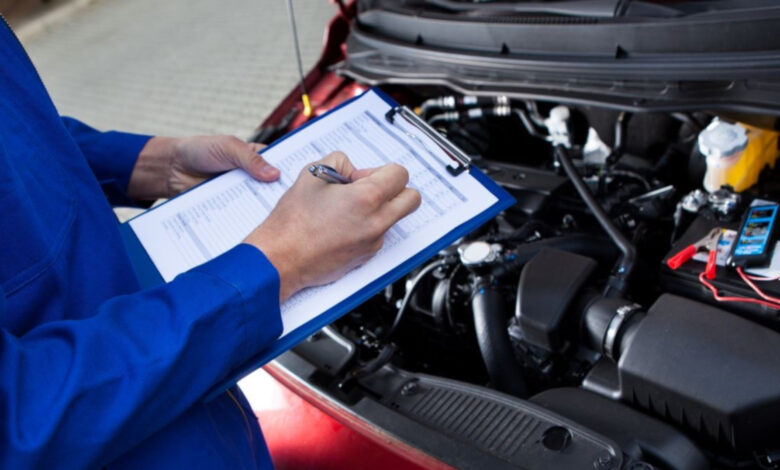Road to Reliability: The Importance of Regular Car Inspections

The reliability of a vehicle is a key factor in ensuring safe and smooth travel on the road. Regular car inspections play a pivotal role in maintaining this reliability, providing drivers with the confidence that their vehicles are in optimal condition.
In this comprehensive guide, we’ll explore the significance of routine car inspections, and understand their impact on safety, performance, and the overall longevity of your vehicle.
The Foundation of Vehicle Safety
Vehicle safety is an essential concern for drivers, passengers, and everyone sharing the road. At the core of ensuring safety on the road lies the foundation of comprehensive vehicle inspections.
This section delves into the crucial role that regular inspections play in establishing and maintaining the safety features of a vehicle.
Safety Assurance through Inspection
Safety is paramount on the road, and routine car inspections serve as the foundation for ensuring a vehicle’s safety features are operating correctly.
From brakes and lights to tires and suspension, a thorough car inspection covers all aspects that contribute to the overall safety of a vehicle. Identifying potential issues early on can prevent accidents and ensure the well-being of both the driver and passengers.
Addressing Wear and Tear
As vehicles age, wear and tear become inevitable. Regular inspections are a proactive approach to addressing these issues before they escalate. Components like brake pads, belts, and fluids are prone to deterioration over time.
Timely inspections allow for the identification and replacement of worn-out parts, preventing unexpected breakdowns and costly repairs.
Performance Optimization
A vehicle’s performance is a key aspect of its overall functionality, influencing factors such as efficiency, power, and drivability. Regular car inspections play a pivotal role in optimizing a vehicle’s performance, ensuring that it operates at its best in various conditions.
Engine Efficiency and Performance
A well-maintained engine is crucial for optimal performance. Regular inspections help ensure that the engine is running efficiently, with components such as the fuel system, ignition system, and exhaust system in proper working order.
Addressing issues promptly not only improves performance but also contributes to fuel efficiency, saving drivers money in the long run.
Transmission and Drivetrain Health
The transmission and drivetrain are intricate systems that require regular attention. Through inspections, potential issues such as leaks, unusual noises, or slipping gears can be detected early on.
Addressing these concerns promptly not only prolongs the life of these critical components but also prevents major breakdowns that could leave drivers stranded.
Longevity and Cost Savings
Ensuring the longevity of a vehicle is a shared goal among drivers, and it goes hand in hand with cost savings.
Regular car inspections play a vital role in achieving both objectives, offering a proactive approach to vehicle maintenance that can extend the lifespan of the vehicle while preventing major financial setbacks.
Preventing Major Repairs
Routine car inspections act as a preventive measure against major and costly repairs. Identifying and rectifying minor issues during inspections can prevent them from developing into more significant problems.
By investing in regular inspections, drivers can extend the lifespan of their vehicles and avoid the financial strain associated with major repairs.
Resale Value and Maintenance Records
For those who consider the resale value of their vehicles, maintaining a record of regular inspections is essential. Prospective buyers often look for well-maintained vehicles with documented service histories.
A vehicle with a comprehensive record of regular inspections and maintenance is more likely to command a higher resale value, reflecting the care and attention it has received over the years.
Environmental Impact
In today’s environmentally conscious landscape, the impact of vehicles on the environment is a growing concern. Regular car inspections play a crucial role in minimizing this impact by ensuring that vehicles adhere to emission standards, promoting fuel efficiency, and encouraging eco-friendly driving practices.
Emission Control and Environmental Responsibility
Modern cars are equipped with emission control systems designed to minimize their environmental impact. Regular inspections ensure that these systems, including catalytic converters and oxygen sensors, are functioning correctly.
By keeping emissions in check, drivers contribute to environmental responsibility, reducing their carbon footprint and helping to preserve air quality.
Fuel Efficiency and Green Driving
A well-maintained vehicle tends to be more fuel-efficient. Regular inspections address issues that can affect fuel economy, such as clogged air filters or malfunctioning oxygen sensors.
As fuel efficiency improves, drivers not only save money at the pump but also contribute to eco-friendly driving practices, aligning with the global push for sustainable transportation.
DIY Inspections and Professional Expertise
Maintaining a vehicle’s health involves a combination of do-it-yourself (DIY) checks and the expertise of certified mechanics.
While DIY inspections allow drivers to monitor basic aspects of their vehicles, professional inspections offer in-depth assessments using specialized tools and diagnostic equipment. This section explores the roles of both approaches in ensuring a vehicle’s optimal performance and longevity.
Simple Checks for Drivers
While professional inspections are crucial, drivers can also perform simple checks to monitor the health of their vehicles between scheduled maintenance. Regularly inspecting tire pressure, fluid levels, and lights can help drivers catch potential issues early on and ensure their vehicles are road-ready.
The Role of Certified Mechanics
Despite the convenience of DIY checks, the expertise of certified mechanics is irreplaceable. Professional inspections involve in-depth assessments of various components, often using specialized tools and diagnostic equipment.
Professional mechanics can identify issues that may not be apparent during simple visual inspections, providing a comprehensive evaluation of a vehicle’s condition.
Creating a Car Inspection Schedule
Establishing a regular car inspection schedule is essential for proactive vehicle maintenance and optimal performance.
This section outlines considerations for creating a personalized inspection timetable based on factors such as the vehicle’s age, driving conditions, and manufacturer recommendations.
Frequency of Inspections
The frequency of car inspections depends on various factors, including the age of the vehicle, driving conditions, and the manufacturer’s recommendations. Newer vehicles may require less frequent inspections, while older ones may benefit from more regular assessments.
Consulting the owner’s manual and adhering to the manufacturer’s guidelines is a good starting point for creating an inspection schedule.
Customizing Based on Driving Habits
Drivers with specific driving habits, such as frequent stop-and-go city driving or towing heavy loads, may need more frequent inspections.
Customizing the inspection schedule based on individual driving conditions ensures that the vehicle is receiving the attention it needs to perform optimally under specific circumstances.
Conclusion
Regular car inspections are not merely a maintenance task; they are a roadmap to ensuring the reliability, safety, and longevity of your vehicle. By prioritizing inspections, drivers invest in the well-being of their vehicles and the peace of mind that comes with knowing they are on the road to reliability.
Whether preventing major repairs, optimizing performance, or contributing to environmental responsibility, routine car inspections are an essential component of responsible vehicle ownership. So, buckle up, stay proactive, and embark on the road to reliability with confidence in every mile you drive.



